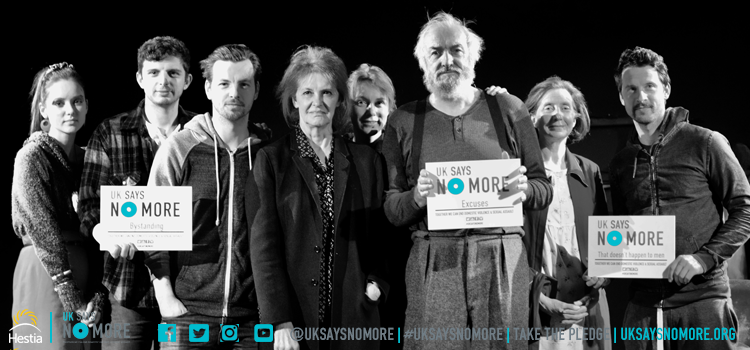Exploring the values of the family unit after a violent and broken marriage, Sam Shepard’s A Lie of the Mind makes a striking and powerful return to stage.

Director James Hillier takes the audience into the 1980’s American mid-west as Beth (Alexandra Dowling) returns to her family in secluded Montana to recover from a violent attack by abusive husband Jake (Gethin Anthony).
From the opening scenes, the play explores many excuses society and families use when confronted with domestic violence; they may believe that it is happening because one partner loves the other that much.
Jake struggles to understand how these events have occurred because his love for Beth so strong. Through the 140 minutes the audience is made to question where blame lies when domestic violence is present in a relationship as well as the stereotypical gender roles and the importance of American values.
Beth’s brother, Mike (Robert Lonsdale), is active in her recovery and becomes the protective older sibling as she tries to regain control of her life.
In comparison of their father Baylor, his failing body and old age proves to be a boundary to any emotional display of affection towards Beth or the situation. His body aches to walk as a result of being in the cold for long periods hunting deer to feed his family, and as a result, he has a lost touch with the ability to feel sentimental. He has become the animal in which he has closely hunted all his life, detached from society, caring more for the American flag than his own daughter. John Stahl’s portrayal of Baylor’s demanding nature is aggressive and the audience were enthralled by the energy of his lines.
Beth’s over caring mother, Meg (Nancy Crane) provides some of the plays strongest scenes when she demonstrates that motherly love is the strongest form of love there is. At times, her over caring nature provide a catalyst for the tension on stage, but her sweet nature wins the audiences heart. The strong bond of a mother-child relationship is also displayed by Jake and his mother Lorraine (Kate Fahy) who clings on to the childhood innocence of her son, despite his actions as a husband.
The audience are given snippets of dialogue that point to notion of domestic abuse is recurring factor in the family home. Both families can be guilty of allowing male dominance to play a crucial role. Masculinity and guns are presented throughout and the audience are shown how Beth’s life has revolved around violence. The play presents gender stereotypes of women being self-sufficient whilst men want to be independent but ultimately rely on women.

The relationship dynamic between Jake and his Mother is interesting and in many ways we can see the parallels between how his mother makes excuses and justifies Jakes abusive behaviour and how we – the general public make excuses for abusive behaviour;
- in conversation – ‘boys will be boys’ or ‘why doesn’t she just leave’
- on social media – ‘but he’s such a nice guy’ or ‘she was asking for it’
- in the locker room – ‘but she was asking for it’ or ‘how did he let that happen to him’.
- around the dining room table – ‘he said he was sorry’ or ‘but… he comes from such a good family’
The concept of love is often ignored when we start to discuss domestic abuse but we understand that no-one falls in love with an abusive, aggressive, domineering and controlling person. We fall in love with attentive, engaging and charismatic person who plans and promises an incredible future. This person then changes and begins to exert power and control over their partner using a number of abusive tactics.
In summary, the play provides us with a snapshot of Family life in 1980’s America but the relationship dynamics and excuses that family members make for each other’s behaviour can be translated into most families across the UK in 2017.
Join us in saying NO MORE excuses to domestic violence and sexual assault by pledging your support UKSAYSNOMORE.org/Gallery and starting the conversation
Hestia and UK SAYS NO MORE will be starting the conversation about domestic violence and sexual assault on May 17th for an exclusive after-show Q&A with Director James Hillier and cast as they discuss their journey of exploring domestic violence.
To give you a helping hand, here are a few questions that you can ask the cast:
- Mike represents the role that many family and friends hold when they know a loved one is experiencing abuse in their relationship. How would you act if you knew a sibling was in a violence relationship?
- As parents, Meg and Baylor are completely opposite, do you relate with one parent more than the other?
- Baylor’s behaviour in the play is aggressive and unpleasant. Does his kiss to his wife, redeem him of his previous actions?
A Lie of the Mind runs from 4-27 May at the Southwark Playhouse, London. Get your tickets now!
Josh McLean – Digital Engagement Officer 


